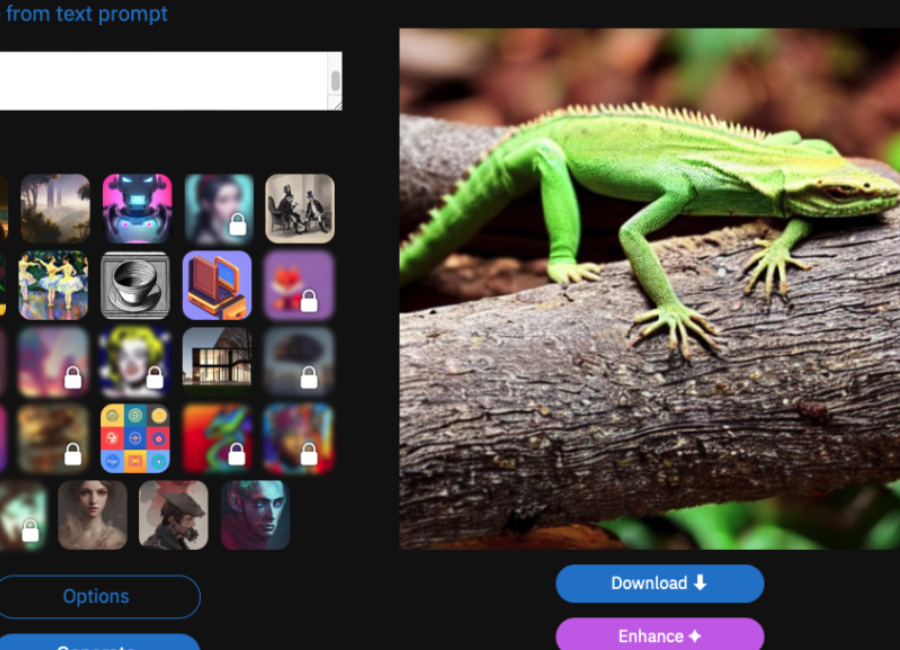Meta concludes the year with a series of novel launches and advancements, bringing forth ‘Imagine,’ a standalone AI image generator that expands its text-to-image generation feature. The platform, accessible at imagine.meta.com in the United States, utilizes Emu, Meta’s foundational image model, and is tailored for creative enthusiasts, providing an independent platform for crafting free web images.
This move represents a notable expansion of Meta’s offerings, elevating the capabilities beyond messaging interactions and reaching a wider audience. The company had initially introduced Imagine within chats, complementing it with the rollout of AI stickers.
Imagine leverages sophisticated algorithms capable of swiftly converting text-based prompts into high-resolution, photorealistic images. The introduction of this innovative feature in Meta’s AI chatbot aimed to democratize image creation, enabling users across various platforms to explore their creative potential. With integration plans for Facebook, Instagram, and WhatsApp in progress, Imagine not only seeks to enhance individual creativity but also holds promise for commercial applications in design, marketing, and education.
In a blog post, Meta expressed its delight in witnessing users utilize Imagine for crafting fun and creative content in chats. The company announced the expansion of Imagine beyond chats, making it accessible to users in the United States through imagine.meta.com.

However, recent controversies related to Meta’s image generation tools have raised concerns about potential pitfalls. A previous incident involving Meta’s racially biased AI sticker generator has prompted questions about safeguards within Imagine to prevent similar occurrences. Although the tool was not available for pre-launch testing, Meta reassures users of ongoing scrutiny as Imagine expands its user base.
In response to transparency concerns, Meta has committed to integrating invisible watermarks into content generated by Imagine in the coming weeks. While not initially active, these watermarks aim to enhance transparency and traceability, aligning with Meta’s commitment to responsible AI usage.
The company’s dedication to safety extends to ongoing investments in red teaming, a pivotal aspect of its culture for years. Meta proactively refines and secures its AI technologies by introducing the Multi-round Automatic Red-Teaming (MART) framework. This framework iteratively tests large language models (LLMs) against potential risks, reinforcing safety protocols.
As Meta ventures into the standalone AI image generation realm with Imagine, the platform’s potential impact on creative expression and content creation becomes evident. The company’s commitment to addressing concerns, implementing safeguards, and fostering responsible AI practices reflects an ongoing effort to balance innovation with ethical considerations in the digital landscape. The integration of Imagine across Meta’s various platforms is expected to shape the landscape of creative expression and content creation in the digital realm.






